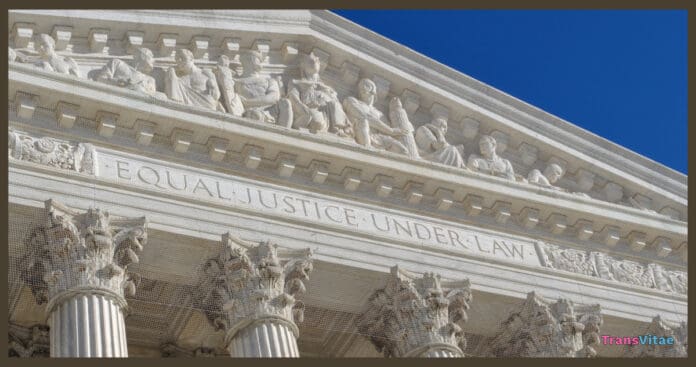WASHINTON DC On a significant Monday, the Supreme Court made a pivotal decision that affects transgender minors in Idaho, approving a state request to enforce a ban on most gender-affirming medical care. This decision came despite dissent from the court’s liberal justices and has sparked a robust response from civil rights groups.
The law in question, Idaho’s Vulnerable Child Protection Act (H.B. 71), prohibits health care providers from offering puberty blockers, hormone therapy, and surgeries aimed at aligning one’s physical appearance with their gender identity if it differs from their biological sex. The law suggests harsh penalties for violations, including up to 10 years in prison and substantial fines.
The case rose to national attention due to the efforts of two families, represented under pseudonyms Pam Poe and Jane Doe, who challenged the law’s constitutionality. Both teenagers have been diagnosed with gender dysphoria and have benefited from puberty blockers and estrogen therapy. Their lawsuit argued that the ban infringed on constitutional rights and could lead to severe psychological distress.
Initially, a federal district court sided with the plaintiffs in December 2023, granting a preliminary injunction that temporarily blocked the law’s enforcement, suggesting the law was likely unconstitutional and its enforcement could cause irreversible harm. The district court’s decision was notably broad, designed to protect the anonymity of the plaintiffs and to prevent a potential flurry of similar lawsuits.
However, after the Ninth Circuit Court of Appeals refused to narrow this injunction, Idaho officials sought emergency intervention from the Supreme Court, which agreed to limit the injunction to only cover the medical treatments of Pam Poe and Jane Doe, while allowing the state to enforce the ban against others.
Justice Neil Gorsuch, writing for the conservative majority, stated that the partial stay posed no harm to the plaintiffs and was necessary to avoid preempting the state’s law for the duration of the lawsuit. In contrast, Justice Ketanji Brown Jackson’s dissent highlighted the importance of judicial caution in such “novel, highly charged, and unsettled circumstances.”
The American Civil Liberties Union (ACLU), representing the families, expressed deep disappointment with the Supreme Court’s decision. “This ruling allows the state to shut down care that thousands of families rely on, sowing further confusion and disruption,” they stated. The ACLU emphasized their commitment to continue fighting the law in court, underscoring the adverse impact on transgender youth across Idaho.
This legal battle in Idaho is not isolated. Over twenty states have introduced similar bans on gender-affirming care for minors, though many face legal challenges. Advocates argue that such laws severely infringe on the rights of transgender individuals, denying them essential, sometimes life-saving, medical care.
Major medical associations like the American Medical Association and the American Academy of Pediatrics support gender-affirming care, according to opponents of the law, including medical professionals and transgender advocates. They emphasize that rather than having laws imposed, parents and their children should make decisions about medical treatments in consultation with healthcare professionals.
The narrowed injunction means that while Pam Poe and Jane Doe can continue their treatment, other transgender minors in Idaho face uncertainty about their ability to access gender-affirming care. This situation could potentially force them to forego essential treatments or seek them out-of-state, adding financial and emotional strain to these families.
As the case continues to unfold, it represents a critical juncture for transgender rights in the United States, particularly concerning the health and well-being of transgender minors. The national debate over these rights continues to intensify, with both legal and societal implications hanging in the balance.
As Idaho and other states navigate these contentious waters, the outcome of this legal challenge will likely influence future legislation and judicial decisions across the country, shaping the landscape of transgender rights for years to come.


